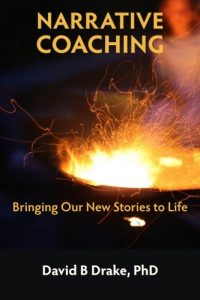 Narrative Coaching
Narrative Coaching
David Drake
Narrative Coaching is of course going to be close to our hearts as we advocate a story telling approach. David’s book covers why storytelling works for the teller, how we create stories and the role of coaches in helping people to find meaning and purpose in their stories.
In addition, there are chapters on How to hold space; How to listen to stories; and How to inquire into stories.
David’s website is www.narrativecoaching.com
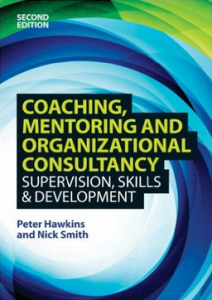
Coaching, Mentoring and Organisational Consultancy
Peter Hawkins and Nick Smith
A book for those in an organisational role connected to coaching and mentoring.
It gives a comprehensive treatment of both. It also gives clear examples as to how to achieve transformational shift within your coaching and mentoring – getting people to rehearse their new behaviours and not simply talk about them.
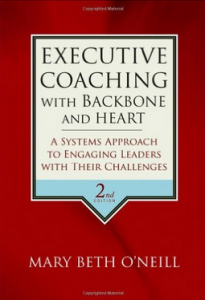 Executive Coaching with Backbone and Heart
Executive Coaching with Backbone and Heart
Mary Beth O’Neil
Mary Beth challenges all coaches that if we ever feel that we are working harder than the coachee, then we are probably adopting more of a rescue model than what she calls a client responsibility model. In the former we take over ownership of the problem and lead the process to solution. In the latter, the position of coach is a secondary relationship, which uncovers information about the system that the client can use to resolve the problem.
The coach does not come between the client and her team, the problem, or the manager. It is a partnership model. We also like how she talks about how to increase your tolerance for anxiety in the moment and build a strong signature presence.
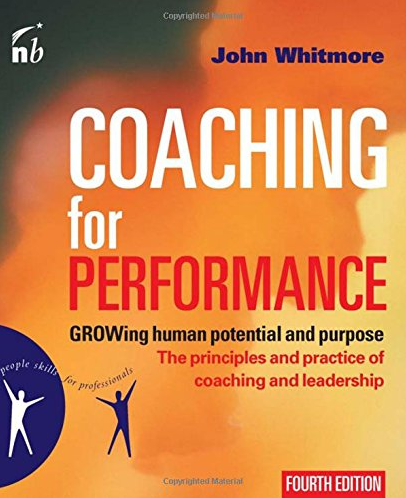 Coaching for Performance
Coaching for Performance
John Whitmore
The originator of the GROW model. John Whitmore goes through the different stages of the GROW model in detail and gives examples of it being used in practice.
The book is now in its 3rd edition.
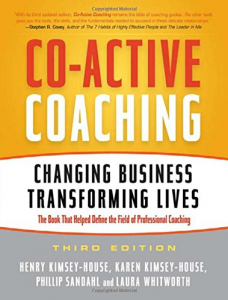 Coactive Coaching
Coactive Coaching
Whitworth, Sandahl and Kimsey-House
A frequent book that I recommend to coaches backed up with resources online. It is linked to CTI coaching training. We love the examples of coaching qualities: listening, curiosity and accompanying exercises to develop your skills in them.
The book describes the process of choosing a coaching direction to best serve the client, advocating the important new insight of “dancing in the moment,” or the ability to remain unattached and flexible. The coach “dances in the moment,” sensing what is important, being able to change course with shifting currents and themes during coaching sessions, knowing that each client response offers information on where to go next.
www.coactive.com/docs/resources/toolkit/index.html
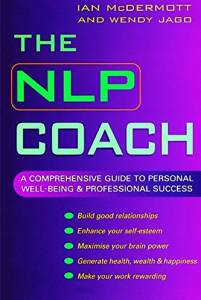 The NLP Coach
The NLP Coach
Ian McDermott and Wendy Jago
For people who are interested in NeuroLinguistic Programming (NLP) this is a good place to see its usefulness in coaching.
Its emphasis is using the tools to self-coach first.
This book gives you access to plenty more tools and techniques to expand your practice.
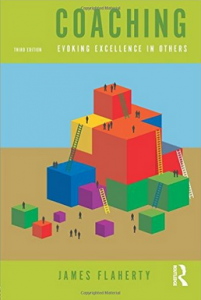
Coaching: Evoking excellence in others
James Flaherty
James Flaherty talks of the Flow of Coaching from Establish Relationship – Recognise Opening – Observe/Assess – Enroll client – Coaching conversations.
He gives very practical pointers as to how to follow this flow and we love his self-observation practices. He talks a lot about building mutual trust and how that develops within coaching.
